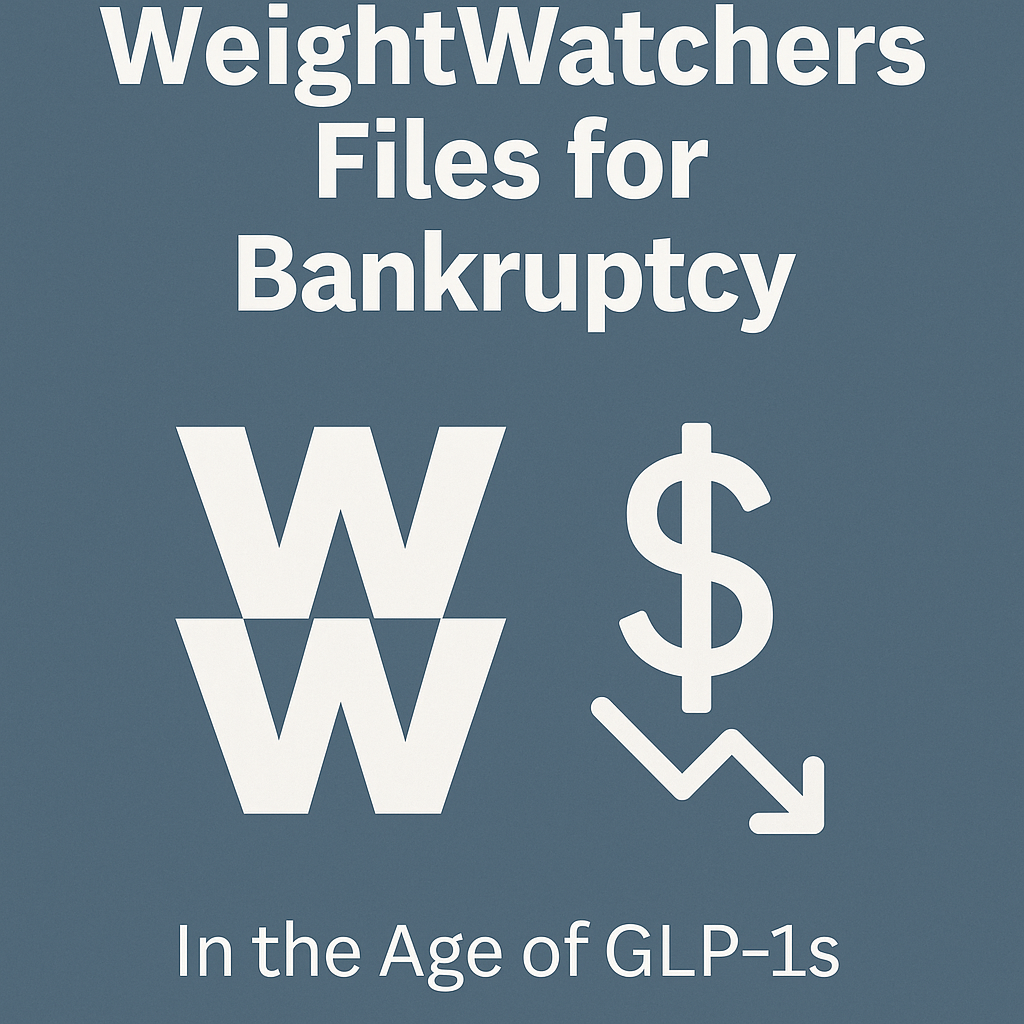WeightWatchers Files for Bankruptcy – What It Means in the Age of GLP-1s

In a striking sign of the times, WeightWatchers—once a household name in diet culture—has filed for bankruptcy protection in the United States. The 60-year-old brand, which helped millions navigate calorie counting and portion control, is now restructuring under a $1.15 billion debt burden. And at the heart of the issue? The meteoric rise of fat-loss injections like Ozempic, Wegovy, and Mounjaro.
The Shift That Changed Everything
For decades, WeightWatchers stood as a go-to support system for anyone looking to lose weight. Weekly group meetings, a trademark points system, and more recently, digital tracking tools helped keep members accountable. But in just a few years, the landscape has shifted. GLP-1 medications like Mounjaro and Ozempic have changed the game entirely, offering a pharmaceutical route to weight loss that many find more effective—and less reliant on willpower alone.
Despite launching its own “clinical” weight-loss programmes that include access to prescription medications, WeightWatchers has struggled to keep pace. The company reported a $346 million net loss last year and saw subscription revenue fall by over 9% in early 2025. It’s clear that the traditional weight-loss model is being rapidly overtaken by a new era of metabolic medicine.
Why This Matters to the Mounjaro Community
Whether you’re on Mounjaro, considering it, or coming off it, the news speaks volumes about how deeply GLP-1s are reshaping how we think about weight, health, and long-term change. WeightWatchers’ own CEO, Tara Comonte, acknowledged that the brand is in a “significant transition,” pivoting to support those looking for “sustainable” weight management after stopping medication. This echoes a growing conversation in the Mounjaro community about what happens after the injections stop—and how to build lifelong habits that support lasting results.
What Happens Now?
According to WeightWatchers, it’s not going out of business. The brand plans to stay fully operational, with no changes to member services, digital tools, or its telehealth arm. The bankruptcy filing is described as a legal reorganisation to help eliminate older debt and refocus on long-term growth. In fact, its clinical weight-loss business—tied to GLP-1 medications—has grown by more than 57%.
That said, it’s worth noting the symbolism here: the very company that once defined diet culture is now scrambling to stay relevant in a world that’s rapidly moving beyond calorie counting.
A Moment of Reflection
This isn’t just a business story—it’s a cultural one. The way we think about body weight, biology, and self-worth is evolving. And while no medication replaces the need for a supportive mindset, balanced nutrition, and mental wellbeing, the old idea that weight loss is solely about willpower is quickly becoming outdated.
As someone who writes about Mounjaro and its real-world impact, I see this as a turning point. We’re not just managing weight—we’re learning to work with our bodies, not against them.
Comments ()